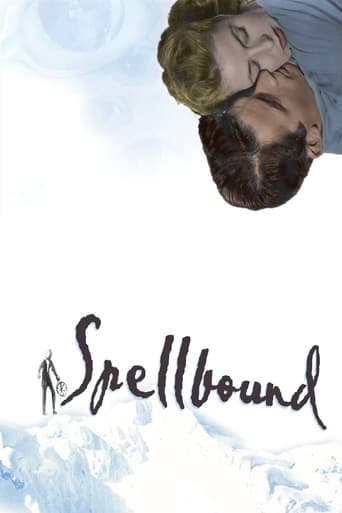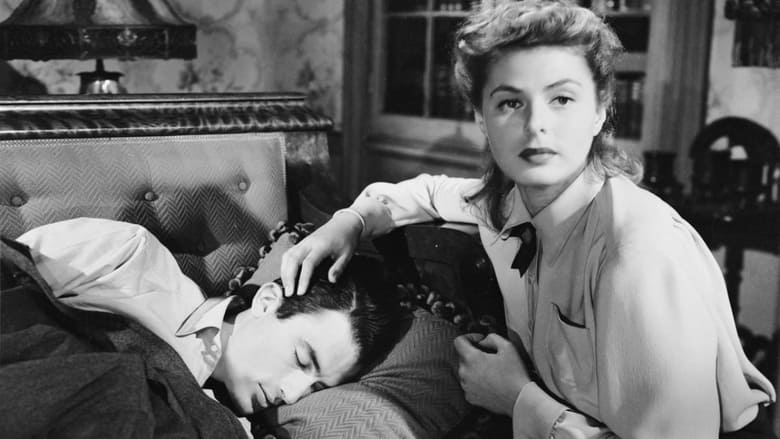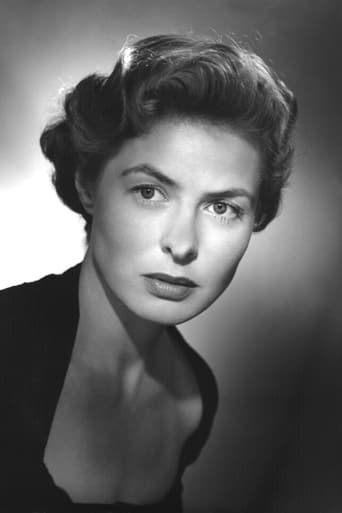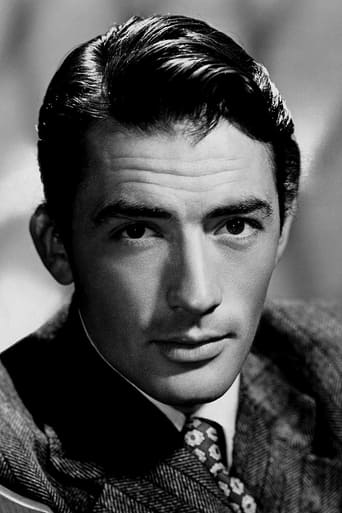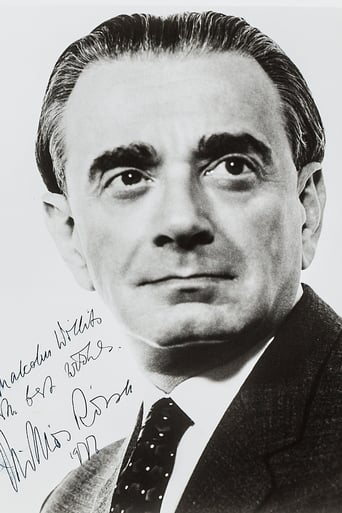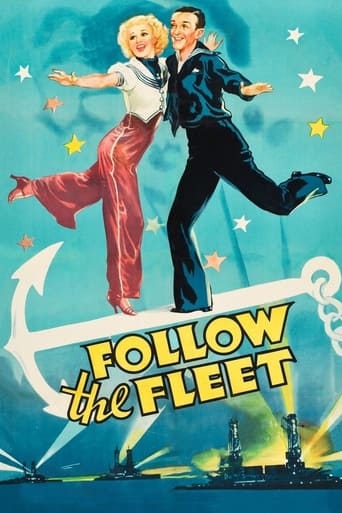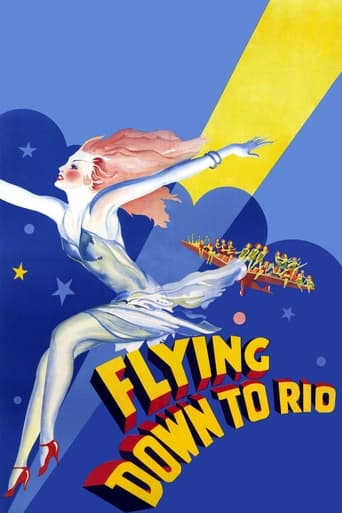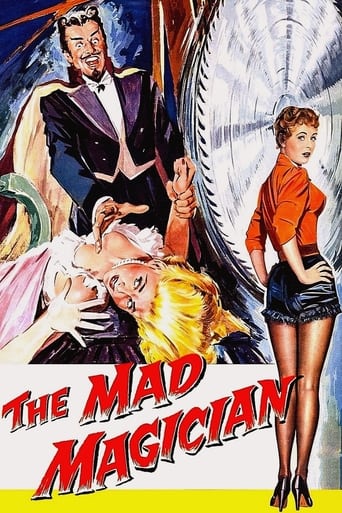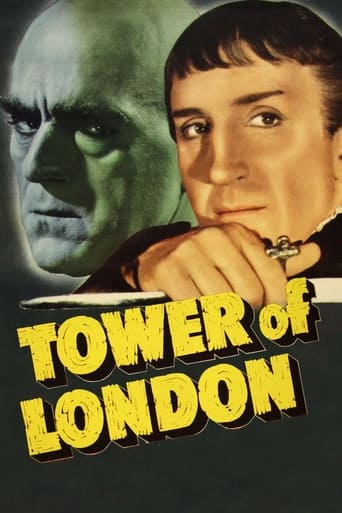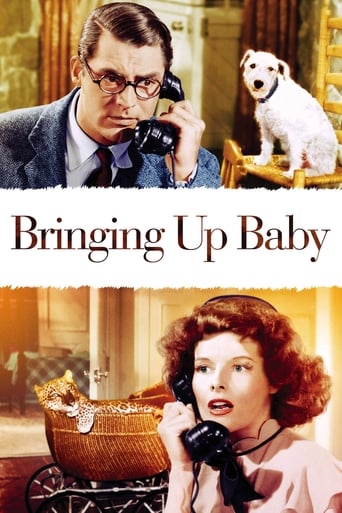Spellbound (1945)
When Dr. Anthony Edwardes arrives at a Vermont mental hospital to replace the outgoing hospital director, Dr. Constance Peterson, a psychoanalyst, discovers Edwardes is actually an impostor. The man confesses that the real Dr. Edwardes is dead and fears he may have killed him, but cannot recall anything. Dr. Peterson, however is convinced his impostor is innocent of the man's murder, and joins him on a quest to unravel his amnesia through psychoanalysis.
Watch Trailer
Free Trial Channels
Cast


Similar titles
Reviews
SERIOUSLY. This is what the crap Hollywood still puts out?
All of these films share one commonality, that being a kind of emotional center that humanizes a cast of monsters.
There is, somehow, an interesting story here, as well as some good acting. There are also some good scenes
Worth seeing just to witness how winsome it is.
One of Hitchcock's most aesthetically pleasing and understandable for a common viewer movies along with another underrated masterpiece 'To Catch a Thief'. Both young Bergman and Peck are so stunningly talented and beautiful that one wouldn't be sorry to die for them. Numerous beautiful yet simple scenes (the suicide scene, for instance) and an amazing surreal scene of a dream just makes this film a must-see.
This finds itself to be severely dated. Psychoanalysis and Freud have both been long swept aside so the core of the film feels a little silly, and all the mind-boggling symbolism and trance-like states that Peck is struck by all seem bizarre, and not in the right way. Psychoanalysis subscribes diligently to the theory that repressed childhood trauma sticks with you long after it is over, so we have that creepy POV shot of the brother being impaled by the fence, and Peck is triggered by symbols along the way that mimic this; lines etched by forks, lines in couches, bars speeding by from a train. But he is also strangely struck by other things like sharp knives cutting meat and a phantom burning in his hand, which seems less coherent and more just another attempt to link violence to his troubled state of mind. The few moments of tension draw attention to themselves overtly with cutaways to closeups and furtive glances - it's all a little too theatrical. Dali's clever (and laboriously constructed) surrealist sequence seems like a vague stab in the dark for some sort of connection, which is of course brilliantly and deductively deciphered by Bergman. If it was the intention to empower her character the film goes about it the wrong way by drawing attention to her gender all too often. This was of course unavoidable in the 40s as a female in a male-dominated profession, but it begins to feel like overkill when every single colleague is unsubtly trying to flirt and demean her at the same time (even Petersen's mentor dismisses any rational point she tries to make). Unsurprisingly Petersen is also privy to a little romance; why else would you cast Ingrid Bergman, after all. It becomes futile to slap spectacles on that face and make her a respected physician, because the script doesn't call for logic, but passion as a means to unravel the mystery behind Edwardes' amnesia. Everything seems to point to his guilt (even he admits it himself), but Petersen is determined to get to the bottom of the case, not because she wants justice, but because she is head over heels in love with the dashing Gregory Peck. Rather insulting, even is she is somehow right. The double mental and sexual metaphor of the 'locked doors of the mind' and the vagina is straight up silly. They both try to convince themselves they are professionals and it isn't about love (which is also unethical), but from that first glance and catch of the eye, and the way the soundtrack always blooms as they embrace, this is less psychological thriller and more romance.
Along with its obvious echoes of the style the master of suspense was so renowned for, SPELLBOUND is a slightly different movie of his. Except for the Expressionistic character of Hitchcock's movies both in their visual schemes and thematic concerns, it is a "tale of psychiatry, love and murder" (Robert Snow). Bearing this in mind, we might quote Francois Truffaut who said about the director that he "gets the maximum effect from the minimum elements." This maximum effect in SPELLBOUND finds its fullest realization in its psychoanalysis, a true novelty for the 1940s.The psychoanalysis here, as dated as it may seem, occurs to symbolize a particularly modern approach not only to the screen adaptation of a literary piece (the film is based upon a 1927 novel THE HOUSE OF DR EDWARDES by Hilary Saint George Saunders and John Palmer) but primarily to addressing of the versatile needs and expectations of its viewers. Certain dated visuals do not, indeed, shadow the dynamic effect of appeal, understanding, interest that the movie still instills after all these decades. All its artistic equipment, including the terrific soundtrack by Miklos Rozsa (not Bergman) known for the instrument of theremin, brilliant details of images, namely the opening doors that appear to symbolize the opening of hidden worlds of characters in a totally new, yet undiscovered manner (Selznick's idea), the ultra-popular dream sequence designed by Salvador Dali (I will mention later) constitute the great merit of the film and its director who could "infuse the simple story with compelling camera work and great pacing that keeps us guessing until the final pieces drop into place" (Robert Snow). However, the major strength of SPELLBOUND lies elsewhere...Carter B Horsley in one of his reviews on Hitchcock's films stated memorably that the Master of Suspense could boast three major points: "immense influence, sardonic and mischievous with and the magnetism of his cast." The two first points would never exist without the last one, that is the leading and supporting cast who make SPELLBOUND a true feat of acing.As the story imprisons its characters within the spheres of psychoanalytical approach which reinforces the duality of human nature, the actors deserve full credit. Ingrid Bergman as Constance Petersen and Gregory Peck as John Ballatyne) make a brilliant couple of a doctor and her patient developing various emotions and feelings that come and go in their growing relationship. With certain liberties taken with its original literary source and highly adapted to the medium needs by Ben Hecht, the cast supply us with an authentic insight into situations and states of mind therein depicted. As the story develops 'emotional problems of the sane,' (which we read at the beginning), they handle the task to prompt the audience to psychoanalyze the characters. Of course, we, supplied already with incomparable experience within that field after years of its popularity, do that differently than viewers of the 1940s did that. Anyway, that inspiration still works. Roger Ebert rightly pointed out about Ingrid Bergman that she "subtly combined the noble and the carnal" Some of the very best moments of theirs include the railway station moment, the kiss, Peck's first entrance and the visit at Dr Alexander Brulov's played magnificently by Michael Checkov. With his weird English accent and his cutting remarks, he makes for supreme wit and thrill as well as adds clever intellectual resonance to the story.The minor point of criticism might refer to the skiing sequence which surely occurs dates and a bit laughable and the performance of Leo G. Caroll as Dr Murchison who, on the one hand, does not call our attention on the true villain (and rightly so) but, on the other hand, becomes a bit too suspicious with his forged respectability, calmness and conventionality.Something needs to be mentioned about Dali sequence. Initially planned as a 22 minute sequence and finally cut to 2 minutes, it is still the most intriguing, nightmarish, mysterious almost part of the movie that is impossible to be skipped. Robert Snow rightly calls it 'cool' stating further that "the backgrounds have that stark, painted quality of Dali's surrealist works." Much more could be said about this excellent movie but the word limit, unfortunately, does not allow that. Putting it in a nutshell, it is one of a little less famous Hitchcock but, surely, highly worth seeing as a tremendous depiction of any sane man put behind bars of guilt complex.
This is yet another classic Hitchcock film. Ingrid Bergman plays a pyschoanaylist. She discovers that a new doctor, played by Gregory Peck is an imposter with amensia. She tries to cure him of the illness. The music is this film is classic. The twists and turns of the plot are classic Hitchcock. Ingrid Bergman was so magnetic on screen. So beautiful and believable. Gregory Peck is also great as the amensia patient. You can really believe that he cant remember who he is. Hitchcock directs the film in such a suspenseful manner, you really get into the plot. More so than if it were some other director. When i first started watching this film it was a bit slow. As it went on i really got into it. That is testament to Hitchcock's genius as a filmmaker. This is one of his very best films. A must see for any Hitchcock fan.

